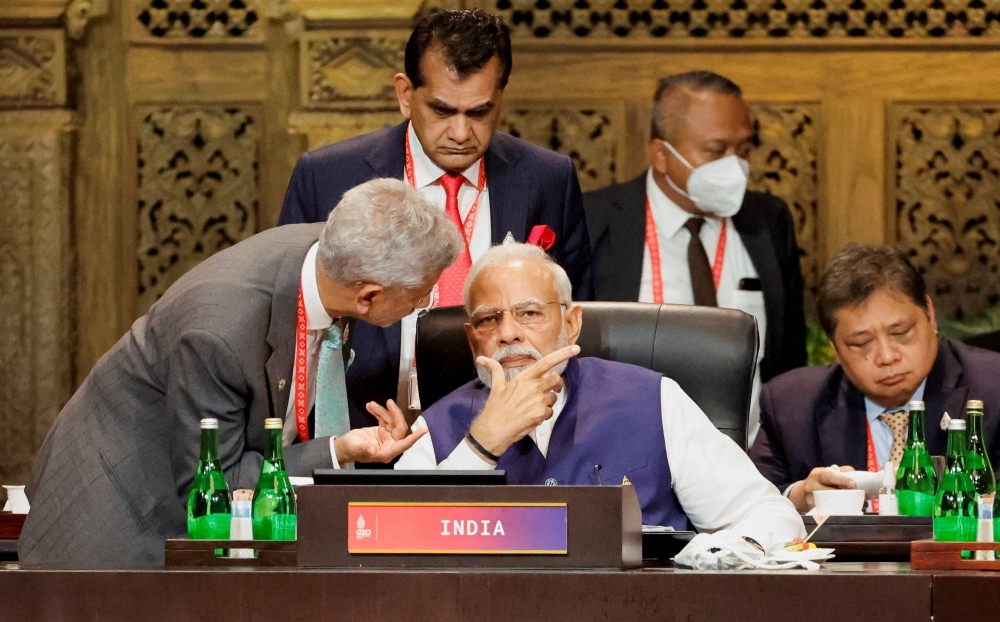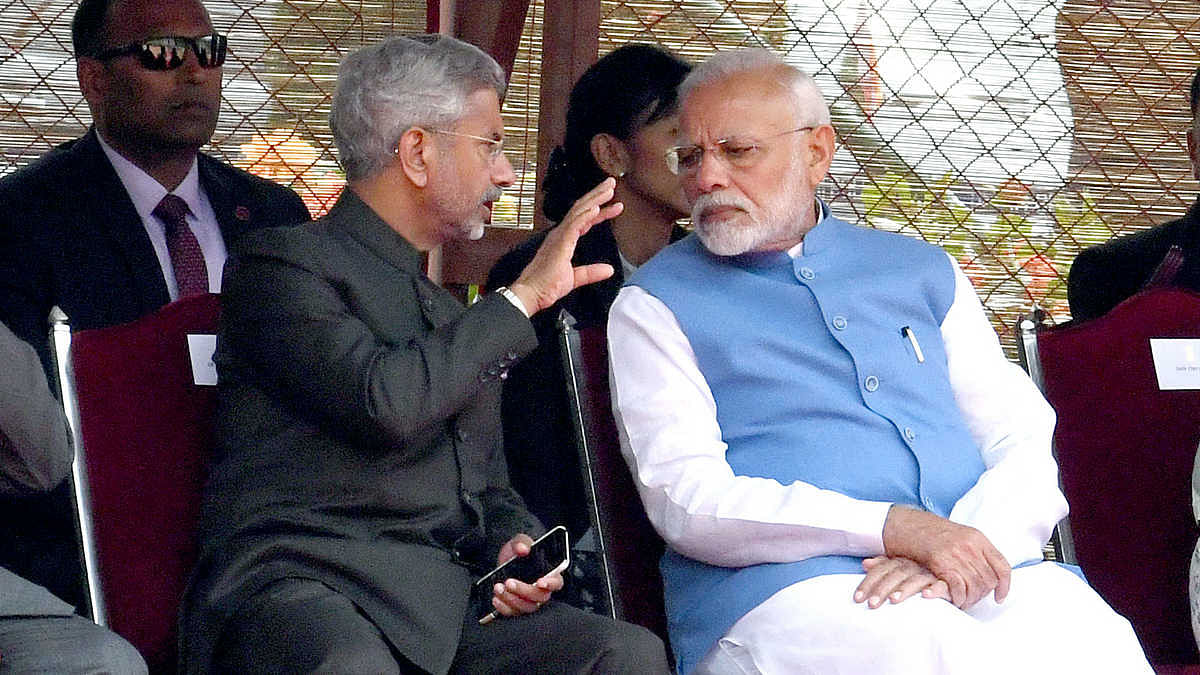Wednesday, July 31, 2024
31: Donald Trump
This Ultra-Thin Lightsail Could Tow Tiny Spacecraft to the Nearest Stars
The Psychology of Olympians and How They Master Their Minds to Perform
The Military-Industrial Complexes In The US And Russia Are Major Culprits In The Ukraine War
The Military-Industrial Complexes in the US and Russia: Major Culprits in the Ukraine War
In the tragic and ongoing conflict in Ukraine, many factors have contributed to the violence and suffering. While geopolitical ambitions, historical tensions, and nationalistic fervor are often highlighted, another critical yet less discussed element is the role of the military-industrial complexes in both the United States and Russia. These powerful entities, driven by profit and influence, have significantly shaped the trajectory of the war, complicating efforts towards peace and stability.
Understanding the Military-Industrial Complex
The term "military-industrial complex" was popularized by former U.S. President Dwight D. Eisenhower in his farewell address in 1961. It refers to the close and often symbiotic relationship between a nation's military, its defense industry, and its government. This complex wields considerable influence over national policy, with the potential to prioritize defense spending and military action over diplomatic and peaceful solutions.
The US Military-Industrial Complex: Profit and Influence
The United States boasts one of the largest and most advanced military-industrial complexes in the world. Comprising major defense contractors, lobbyists, and government officials, this network exerts a powerful influence over American foreign and defense policies. In the context of the Ukraine war, the US military-industrial complex has played a significant role in shaping the country's response.
- Arms Sales and Military Aid: The U.S. has provided substantial military aid to Ukraine, including advanced weaponry, intelligence, and training. While this support is often justified as necessary to help Ukraine defend itself against Russian aggression, it also benefits American defense contractors, who see increased sales and profits.
- Lobbying and Policy Shaping: Defense contractors and their lobbyists have a vested interest in promoting policies that sustain or escalate military engagements. The conflict in Ukraine provides a justification for continued or increased defense spending, which benefits these corporations financially.
- Media and Public Perception: The military-industrial complex also influences media narratives, shaping public opinion to support military interventions. By framing the conflict in terms of good versus evil, and emphasizing the need for a strong response, these narratives can marginalize diplomatic alternatives.
The Russian Military-Industrial Complex: Power and Propaganda
In Russia, the military-industrial complex is similarly entrenched, though it operates within a different political and economic context. The Russian government maintains close ties with its defense industry, which serves both as a crucial economic sector and a tool of state power.
- State-Controlled Defense Sector: Unlike in the U.S., Russia's defense industry is more centralized and state-controlled. Major arms manufacturers are often directly or indirectly owned by the state, aligning their interests with those of the government. The war in Ukraine has been a catalyst for ramping up production and testing new weaponry, benefiting the military-industrial sector.
- Economic Motives: For Russia, the military-industrial complex also serves as a vital source of revenue and employment. Sanctions and economic isolation have limited Russia's options, making the defense industry an even more critical component of its economy. The war in Ukraine has provided a pretext for increasing defense expenditures, bolstering this sector.
- Propaganda and Nationalism: The Russian government has utilized the conflict to foster nationalism and support for the state. The military-industrial complex is part of this propaganda machine, portraying military might as a symbol of national pride and sovereignty.
The Consequences: Escalation and Entrenchment
The involvement of the military-industrial complexes in both the U.S. and Russia has several profound consequences for the Ukraine war:
- Escalation of Violence: The provision of advanced weaponry and military support has escalated the conflict, making it more lethal and difficult to resolve. The profit motive of defense contractors, coupled with geopolitical interests, incentivizes continued or increased military engagement.
- Obstacles to Peace: The vested interests of the military-industrial complexes create significant obstacles to diplomatic efforts. Both in the U.S. and Russia, powerful actors benefit from the status quo or from an escalation, rather than a resolution, of the conflict.
- Humanitarian Impact: The war's human toll is immense, with thousands killed, millions displaced, and widespread destruction. The priorities of the military-industrial complexes, focused on profit and power, often overshadow humanitarian concerns, exacerbating the suffering.
Conclusion: A Call for Accountability
The role of the military-industrial complexes in the Ukraine war is a stark reminder of the dangers posed by the intertwining of defense industries and state power. As the conflict drags on, it is crucial to recognize and challenge the influence of these entities, advocating for policies that prioritize peace, diplomacy, and human well-being over profit and militarism.
Only by addressing these underlying dynamics can we hope to find a lasting resolution to the conflict and prevent similar situations in the future. It is time for a global reckoning with the military-industrial complexes that, too often, drive nations towards war instead of peace.
Narendra Modi And Ukraine (2)
@narendramodi @DrSJaishankar And #Ukraine https://t.co/Tjpw4bB54g #UkraineRussiaWar️️ @MisaBharti @RabriDeviRJD @RJDforIndia @BoltaHindustan @PJkanojia @thewirehindi @ThePrintIndia @Nidhi @khanumarfa @thewire_in @RanaAyyub @UmarKhalidJNU @bainjal @DrKumarVishwas
— Paramendra Kumar Bhagat (@paramendra) July 31, 2024
Within 1 – 2 years, AI will be the best diagnostician for detecting cancer and prescribing the optimal course of treatment. “CancerGPT” will be a real thing.
— Peter H. Diamandis, MD (@PeterDiamandis) July 31, 2024
@narendramodi @DrSJaishankar And #Ukraine https://t.co/Tjpw4bAxeI #UkraineRussiaWar️️ @sudhirchaudhary @SwetaSinghAT @manakgupta @BJP4India @AamAadmiParty @_YogendraYadav@kanhaiyakumar @Shehla_Rashid @SanjayAzadSln @jigneshmevani80 @MEAIndia @Mayawati
— Paramendra Kumar Bhagat (@paramendra) July 31, 2024
@narendramodi @DrSJaishankar And #Ukraine https://t.co/Tjpw4bAxeI #UkraineRussiaWar️️ @yadavakhilesh @myogiadityanath @sardanarohit @RubikaLiyaquat @kanhaiyakumar @ReallySwara @anuragkashyap72 @anubhavsinha @samajwadiparty @MediaCellSP @aashishsy @BrajeshYadavSP
— Paramendra Kumar Bhagat (@paramendra) July 31, 2024
@narendramodi @DrSJaishankar And #Ukraine https://t.co/Tjpw4bAxeI #UkraineRussiaWar️️ @sunilyadv_unnao @RJDforIndia @TejYadav14 @manojkjhadu @AlokMehtaMP @sanjuydv @Arunrjd @KumarBulo @JPNYadav @Nawalk7 @vijayprkyadav @RabriDeviRJD @MamataOfficial @laluprasadrjd
— Paramendra Kumar Bhagat (@paramendra) July 31, 2024
@narendramodi @DrSJaishankar And #Ukraine https://t.co/Tjpw4bAxeI #UkraineRussiaWar️️ @SharadYadavMP @UpendraRLSP @RLSPIndia @HemantSorenJMM @JmmJharkhand @ShibusorenJMM @IrfanAnsariMLA@PJkanojia @jyotiyadaav @JM_Scindia @IYC @srinivasiyc @Chiranjeev_INC @INCHaryana
— Paramendra Kumar Bhagat (@paramendra) July 31, 2024
@narendramodi @DrSJaishankar And #Ukraine https://t.co/Tjpw4bB54g #UkraineRussiaWar️️ @MahilaCongress @navjivanindia @INCMP @JVSinghINC @Radhika_Khera @HasibaAmin @nsui @Pawankhera @AkhileshPSingh@sanjaynirupam @SachinPilot @GovindDotasra @girirajsinghbjp @RakeshSinha01
— Paramendra Kumar Bhagat (@paramendra) July 31, 2024
@narendramodi @DrSJaishankar And #Ukraine https://t.co/Tjpw4bB54g #UkraineRussiaWar️️ @amitmalviya @NupurSharmaBJP @BJP4Delhi @BJP4Karnataka @ShobhaBJP @BSYBJP @hd_kumaraswamy @siddaramaiah@nalinkateel @Tejasvi_Surya @PiyushGoyal @ChouhanShivraj @KailashOnline
— Paramendra Kumar Bhagat (@paramendra) July 31, 2024
@narendramodi @DrSJaishankar And #Ukraine https://t.co/Tjpw4bAxeI #UkraineRussiaWar️️ @SuhasBhagatBJP @qarisohaibrjd @ShivChandraRamm @DrTanweerHassan @sshaktisinghydv @AlokMehtaMP @AlokMehtaMP@YouthRjd @TribalArmy @YashMeghwal @iHansraj @imdevprakash @BJP4UP
— Paramendra Kumar Bhagat (@paramendra) July 31, 2024
Proud to have pledged my support for Kamala Harris alongside over 100 VCs representing ~$150B in assets under management, including industry titans like @vkhosla and @reidhoffman.
— Amber Illig (@AmberIllig) July 31, 2024
Transparently, I was nervous to participate, but here's why I did & why I'm voting for Kamala >> pic.twitter.com/q0Lg9pelze
@narendramodi @DrSJaishankar And #Ukraine https://t.co/Tjpw4bAxeI #UkraineRussiaWar️️ @drdineshbjp@anupmajaisbjp @kpmaurya1 @ChandrakalaIas @MPDharmendraYdv @RajeevRai @dimpleyadav @yogita_singh13 @pankhuripathak @priyankasinghsp @Nishayadav158 @juhiesingh @anil100y
— Paramendra Kumar Bhagat (@paramendra) July 31, 2024
@narendramodi @DrSJaishankar And #Ukraine https://t.co/Tjpw4bAxeI #UkraineRussiaWar️️ @TheProIndia @NareshUttamSP @BhadauriyaAnand @nidhiyadav26 @RichaSingh_Alld @AbbasAliRushdi @RoliTiwariMish1 @aashishsy @MPDharmendraYdv @juhiesingh @AbbasAliRushdi @jeetusp @pawanpandeysp
— Paramendra Kumar Bhagat (@paramendra) July 31, 2024
@narendramodi @DrSJaishankar And #Ukraine https://t.co/Tjpw4bB54g #UkraineRussiaWar️️ @UmarKhalidJNU @jigneshmevani80 @_YogendraYadav @HardikPatel_ @mehartweets @kunalkamra88 @pbhushan1@_sabanaqvi @AisiTaisiDemo @RanaAyyub @ShekharGupta @ShivAroor @Ram_Guha
— Paramendra Kumar Bhagat (@paramendra) July 31, 2024
@narendramodi @DrSJaishankar And #Ukraine https://t.co/Tjpw4bAxeI #UkraineRussiaWar️️ @MinhazMerchant @tavleen_singh @swapan55 @AUThackeray @MumbaiPolice @CPMumbaiPolice @thevirdas@mangeshkarlata @sonakshisinha @filmfare @gauravcsawant @MaheshNBhatt @AzmiShabana
— Paramendra Kumar Bhagat (@paramendra) July 31, 2024
@narendramodi @DrSJaishankar And #Ukraine https://t.co/Tjpw4bB54g #UkraineRussiaWar️️ @Javedakhtarjadu @shekharkapur @PritishNandy @virsanghvi @GulPanag @nitin_gadkari @Ram_Guha@SitaramYechury @SitaramYechury @cpimspeak @vijayanpinarayi @KeralaGovernor @mkstalin @arivalayam
— Paramendra Kumar Bhagat (@paramendra) July 31, 2024
Look, there are certainly places where AI is overhyped and many places where it is undervalued. Some value is fast, some will take years of integration
— Ethan Mollick (@emollick) July 31, 2024
But there is no universal hype cycle that technologies go through to become useful. Adoption depends on complex market factors https://t.co/oMkNpVCVKs
@narendramodi @DrSJaishankar And #Ukraine https://t.co/Tjpw4bAxeI #UkraineRussiaWar️️ @CMOTamilNadu @ahmedpatel @msisodia @AnkitLal @AapKaGopalRai @Amitjanhit @Shalupcrf @AamAadmiParty@ashutosh83B @Ankita_Shah8 @aartic02 @ShatruganSinha @YashwantSinha @PChidambaram_IN
— Paramendra Kumar Bhagat (@paramendra) July 31, 2024
Congrats to the Tesla drivetrain team! https://t.co/xxaevcWtP6
— Elon Musk (@elonmusk) July 31, 2024
Narendra Modi And Ukraine
Formula For Peace In Ukraine https://t.co/HwkF5wLByN #Ukraine #UkraineRussiaWar️️ @narendramodi @DrSJaishankar @PMOIndia @PM_nepal_ @BJP4India @VasundharaBJP @BJP4UP @BJP4UP @RajuBistaBJP @BJP4Delhi @BJPLive @BJP4Gujarat @ShahnawazBJP
— Paramendra Kumar Bhagat (@paramendra) July 31, 2024
Formula For Peace In Ukraine https://t.co/yl27p82ehk Narendra Modi, the Prime Minister of India, and Jaishankar, his most able Foreign Minister, are best positioned to make this peace happen. And if they do, I think they should be awarded the Nobel Peace Prize.
— Paramendra Kumar Bhagat (@paramendra) July 31, 2024
Formula For Peace In Ukraine https://t.co/HwkF5wLByN #Ukraine #UkraineRussiaWar️️ @Aroosh_ND @manishk04730288 @mehtasanjay @NinadKarpe @paraga @paragkhanna @satyanadella @ersnshah @sundarpichai @RoKhanna @reshmasaujani @KamalaHarris @VP @yoshida_chris @JeniferRajkumar
— Paramendra Kumar Bhagat (@paramendra) July 31, 2024
BREAKING: Vice President Kamala Harris just demolished Donald Trump for backing out of the debate saying “Donald, if you’ve got something to say, say it to my face.” Retweet so all Americans see this badass moment from Kamala Harris. pic.twitter.com/6Man51nihM
— Kamala’s Wins (@harris_wins) July 30, 2024
The legacy media NPC grovel fest https://t.co/lGcYoDas62
— Elon Musk (@elonmusk) July 29, 2024
I remember people telling me, when I called for Biden to step aside for Harris almost a month ago, that there would be a party civil war, that Harris would be skipped over by donors, that there wasn't enthusiasm for Harris from the base, etc, etc.
— Mehdi Hasan (@mehdirhasan) July 30, 2024
How did that argument work out? https://t.co/mOLetqpLBA
Formula For Peace In Ukraine https://t.co/HwkF5wLByN #Ukraine #UkraineRussiaWar️️ @narendramodi @DrSJaishankar @DrSJaishankar @rashtrapatibhvn @HMOIndia @GeneralBakshi @DrMNPandeyMP @rsprasad @adgpi @JM_Scindia @dpradhanbjp
— Paramendra Kumar Bhagat (@paramendra) July 31, 2024
Formula For Peace In Ukraine https://t.co/HwkF5wLByN #Ukraine #UkraineRussiaWar️️ @narendramodi @DrSJaishankar @HardeepSPuri @AmitShahOffice @PIB_India @MoHFW_INDIA @MEAIndia @PrashantKishor @narendramodi @arvindkejriwal @amitshah @BDUTT @EconomicTimes @iamsrk @srbachchan
— Paramendra Kumar Bhagat (@paramendra) July 31, 2024
Formula For Peace In Ukraine https://t.co/HwkF5wLByN #Ukraine #UkraineRussiaWar️️ @narendramodi @DrSJaishankar @BeingSalmanKhan@akshaykumar @sachin_rt @imVkohli @deepikapadukone @aamir_khan @priyankachopra @arrahman @BDUTT @bibekdebroy @priyankachopra @arrahman
— Paramendra Kumar Bhagat (@paramendra) July 31, 2024
Formula For Peace In Ukraine https://t.co/HwkF5wLByN #Ukraine #UkraineRussiaWar️️ @narendramodi @DrSJaishankar @arvindkejriwal @amitshah @rajnathsingh @rahulgandhi @smritiirani @shashitharoor @piyushgoyal@nitin_gadkari @pmoindia @dalailama @bjp4india @anandmahindra
— Paramendra Kumar Bhagat (@paramendra) July 31, 2024
Formula For Peace In Ukraine https://t.co/HwkF5wLByN #Ukraine #UkraineRussiaWar️️ @narendramodi @DrSJaishankar @EconomicTimes @ficci_india @pbmehta @paulwsj @juniorbachchan @KapilSharmaK9 @SushantBSinha@yadavtejashwi @MajorPoonia @gchahal @mansukhmandviya
— Paramendra Kumar Bhagat (@paramendra) July 31, 2024
Formula For Peace In Ukraine https://t.co/HwkF5wLByN #Ukraine #UkraineRussiaWar️️ @narendramodi @DrSJaishankar @RonnieScrewvala @vineetnayar @iamsrk @srbachchan @BeingSalmanKhan @akshaykumar @sachin_rt@imVkohli @deepikapadukone @iHrithik @aamir_khan @SouthINDGoogly @aamir_khan
— Paramendra Kumar Bhagat (@paramendra) July 31, 2024
Formula For Peace In Ukraine https://t.co/HwkF5wLByN #Ukraine #UkraineRussiaWar️️ @narendramodi @DrSJaishankar @sonamkapoor @karanjohar @shahidkapoor @faroutakhtar @aliaa08 @sonakshisinha @chetan_bhagat@timesofindia @anupamkher @ParineetiChopra @thekiranbedi @ndtv @RNTata2000
— Paramendra Kumar Bhagat (@paramendra) July 31, 2024
Formula For Peace In Ukraine https://t.co/HwkF5wLByN #Ukraine #UkraineRussiaWar️️ @narendramodi @DrSJaishankar @ImRaina @ajaydevgn @AnushkaSharma @akhileshsharma1 @nishantchat @KartiPC @Sharmistha_GK @awasthis@Shehzad_Ind @rssurjewala @AIADMKOfficial @virendersehwag @msdhoni
— Paramendra Kumar Bhagat (@paramendra) July 31, 2024
Formula For Peace In Ukraine https://t.co/HwkF5wLByN #Ukraine #UkraineRussiaWar️️ @narendramodi @DrSJaishankar @sardesairajdeep @sagarikaghose @vikramchandra @AmolSharmaWsj @SachinKalbag @madversity@cricketwallah @Kanchangupta @Rahulkanwal @Kanchangupta @Rahulkanwal @paulwsj
— Paramendra Kumar Bhagat (@paramendra) July 31, 2024
Formula For Peace In Ukraine https://t.co/HwkF5wLByN #Ukraine #UkraineRussiaWar️️ @narendramodi @DrSJaishankar @shashitharoor @INCIndia @KapilSibal @ChouhanShivraj @KailashOnline @ahmedpatel @JM_Scindia @INCMP @IYC@INCDelhi @HasibaAmin @Radhika_Khera @pankhuripathak
— Paramendra Kumar Bhagat (@paramendra) July 31, 2024
Formula For Peace In Ukraine https://t.co/HwkF5wM9ol #Ukraine #UkraineRussiaWar️️ @narendramodi @DrSJaishankar @RubikaLiyaquat @TheSamirAbbas @vinodkapri @chitraaum @anuraagmuskaan @sambitswaraj @ZeeNewsHindi @SudarshanNewsTV @Live_Hindustan
— Paramendra Kumar Bhagat (@paramendra) July 31, 2024
Formula For Peace In Ukraine https://t.co/HwkF5wLByN #Ukraine #UkraineRussiaWar️️ @narendramodi @DrSJaishankar @news24tvchannel @1stIndiaNews @RajGovOfficial @Pawankhera @NayakRagini @ManishTewari @DrAMSinghvi
— Paramendra Kumar Bhagat (@paramendra) July 31, 2024


